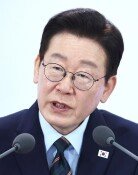The calm before the ‘European IRA storm’
The calm before the ‘European IRA storm’
Posted March. 11, 2023 08:06,
Updated March. 11, 2023 08:06
The European Union (EU) is scheduled to announce the Critical Raw Materials Act (CRMA) on Tuesday, which aims to strengthen the supply chain of key minerals for electric vehicle (EV) batteries. According to the draft, which was previously released to the media, the E.U. plans to set the goal of requiring at least 10% of key raw materials to be produced within Europe and 40% to be processed within the region. As a result, there are concerns that the ’European IRA’ following the U.S. Inflation Reduction Act (IRA) could deal another blow to Korean companies.
CRMA is a bill that has been promoted with the intention of a joint response strategy by the 27 member states of the E.U. for the stable securing of core minerals. Europe, which has relied on China and Russia for more than 90% of its 30 major minerals, has been seeking alternatives such as diversifying imports since last year when supply chain disruptions intensified due to the Russia-Ukraine conflict. According to what is known so far, CRMA does not include origin-related regulations or support discrimination provisions as its U.S. counterpart. However, it is difficult to rule out the possibility that related content will be added as the provisions of the law are specified in the future.
As the race to secure minerals heats up amid competition in high-tech industries such as EVs and batteries, major countries continue to build further trade barriers. Regulations caused by the economic bloc are also on the rise. In the case of CRMA, environmental requirements are expected to become more stringent, such as mandatory disclosure of carbon footprint on top of materials regulations. The E.U. also declared a “grant race" with the U.S., saying that it will provide the same level of subsidy as the U.S. in the form of a matching fund to environmentally-friendly companies in the region. Korean EV and battery makers will likely experience an increased burden due to joint assaults by Europe and the U.S., which put their own interests over others.
Korea, which had already been confounded by the U.S. IRA and CHIPS Act, is currently scurrying for CRMA follow-up measures. As the details of the CRMA become concrete, more unfavorable conditions for Korea are being added. No one knows when and where the regulations that prove detrimental to Korea will be announced. There is an urgent need for preemptive measures to safeguard the interests of Business Korea while minimizing adverse effects. We must focus on diversifying our supply chain while reducing our dependence on China for key raw materials. The government should not be negligent in implementing policies that foster the intensive fostering of strategic industries where full-fledged support can also enhance technological competitiveness.



![[단독]폴란드, 韓 해군 최초 잠수함 ‘장보고함’ 무상 양도 안받기로](https://dimg.donga.com/c/138/175/90/1/wps/NEWS/IMAGE/2026/02/27/133437397.1.jpg)

![‘노인 냄새’ 씻으면 없어질까?…“목욕보다 식단이 더 중요”[노화설계]](https://dimg.donga.com/c/138/175/90/1/wps/NEWS/IMAGE/2026/02/27/133434557.3.jpg)

